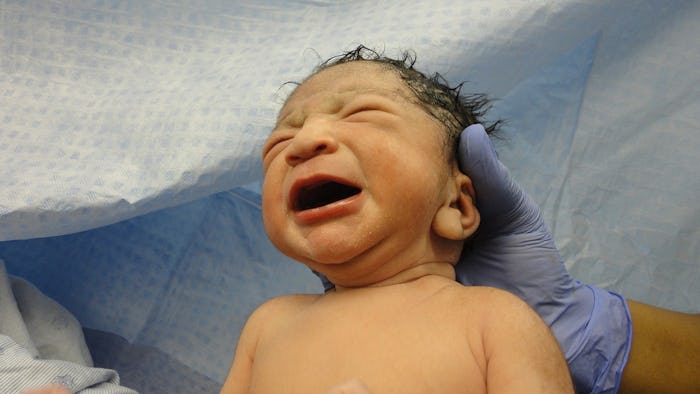Thousands of women choose home births every year, but depending on what state they live in, having medical support during the delivery could mean criminal charges for the birthing professional — even if the person is an obstetrician or a nurse midwife. But in Alabama, decades-old legislation outlawing home births was reversed recently as lawmakers managed to pass a bill Friday that some say will add a layer of safety to home births and expand access to birthing professionals for women in isolated areas. At a time when hospitals and health centers around the state are facing severe budget shortages or closing altogether, an Alabama law decriminalizing midwifery could prove pivotal in the debate over healthcare access and reversing infant mortality rates.
The bill, which passed in the final hours of the state’s 2017 legislative session on Friday, would allow either licensed nurse midwives or those certified by an accredited organization to practice midwifery and attend home births. The current law makes it a misdemeanor for midwives to practice in Alabama, with a small exception for nurse midwives; As licensed nurses, they are allowed to deliver babies in hospitals as long as they practice in collaboration with an obstetrician.
But not all women in the state have access to a board-certified obstetrician — or even a hospital. One in five people in Alabama live in poverty, and the strain of caring for them as funds for Medicaid and Medicare dwindle has caused nearly a dozen hospitals to shutter in the past three years. Currently, eight Alabama counties have no hospital at all and 37 don’t have hospitals that deliver babies. With only four nurse midwives currently practicing in Alabama, supporters argue that the current situation has left women with fewer options for safe birth.
According to an AL.com report, supporters in the state have been pressing to reverse the law for at least 13 years. The Alabama Birth Coalition led the grassroots coalition for decriminalizing midwives in the state, and president Kaycee Cavender tells Romper that mobilizing mothers was key to getting legislators on their side:
We had a huge effort of educated consumers that knew exactly what they wanted. We had to start at the bottom, reaching out to moms and bringing them in. We shared articles and talked about the process. It was important for them to get that there is no such thing as certainty in politics, so we had to educate them about the legislative process and what we could actually get passed.
Among the major issues has been concern from the medical community over the potential dangers to mothers and babies in home births attended by certified professional midwives, who are not licensed by a state board or trained as nurses. A 2010 study in the Journal of Perinatology found that home births with midwives had higher neonatal mortality rates than those in hospitals — and that those attended by certified professional midwives had up to four times the neonatal mortality rate as those attended by nurse midwives.
According to the Montgomery Advertiser, lawmakers added a slate of last-minute amendments to the statute in order to overcome those concerns. The version that was delivered to Governor Kay Ivey now requires practicing midwives to hold certification from the Institute for Credentialing Excellence and establishes a state board to oversee the standards. In addition, practicing midwives will have to have at least $300,000 in professional liability insurance and establish a written emergency plan, signed by the pregnant woman, at least thirty days before the birth.
Once signed by Governor Ivey, the law would go into effect as early as August 2017. It's a promising development for moms all across the state, to say the least.
